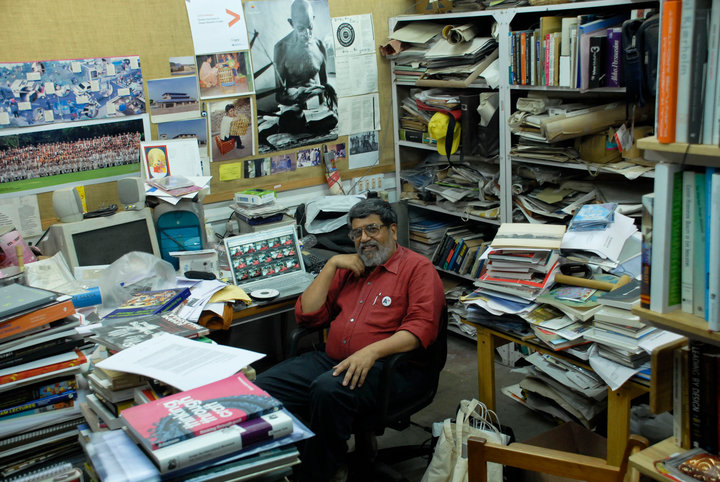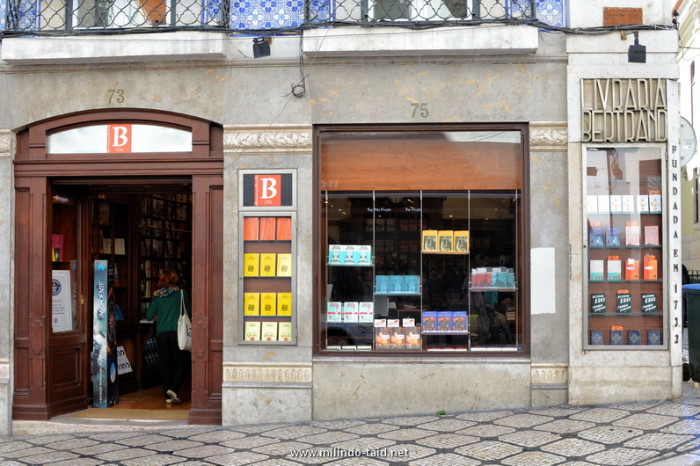
The world has not seen the likes of Anas Aremeyaw Anas, and I am not sure there will be another like him in quite a while. A lawyer who disguises as a Saudi Sheikh and camouflages himself as a rock, and no, he is no supporting actor in a television sitcom. Anas, based out of his native Accra, Ghana, encountered rampant societal evils in and around his country, and his response to those evils was to embrace unorthodox undercover investigative journalism. Clearly cutting away from the mainstream, dumbed down, market driven journalistic practices and the hollow promises of highbrow talking head journalism, Anas puts forth simple and lucid principles that govern his kind of journalism, namely: Naming, Shaming and Jailing. Purists may cringe, but I must say, I tend to nod my head in agreement this time, when Anas articulates that the ends justify the means. Anas’s work is governed by a moral compass, so to say, in his relentless pursuit of the unmasking of societal ills and evils and in particular the perpetrators and collaborators of such ills and evils, from human trafficking to human rights violations to corruption in high office, to superstitions and blind beliefs. Read More…

 I choose not to write ‘obituaries’. Well, I find most of them well meaning, but, most times unbearably eulogistic, with the expected greatness of a life well lived, heaped and thrust upon the recently departed. He passed away yesterday, and I recall that November afternoon, sixteen years ago when I first conversed with
I choose not to write ‘obituaries’. Well, I find most of them well meaning, but, most times unbearably eulogistic, with the expected greatness of a life well lived, heaped and thrust upon the recently departed. He passed away yesterday, and I recall that November afternoon, sixteen years ago when I first conversed with 





 Photo gallery
Photo gallery Photo gallery
Photo gallery Your courses were always the best. By the way, just went through a bit of your website. It’s great! Some good stuff in there that I wouldn’t normally chance upon
Your courses were always the best. By the way, just went through a bit of your website. It’s great! Some good stuff in there that I wouldn’t normally chance upon Utterly Brilliant! I just thought you should know that you have engaged another human with your work here, and for that I thank you!
Utterly Brilliant! I just thought you should know that you have engaged another human with your work here, and for that I thank you! Photo gallery
Photo gallery Photo gallery
Photo gallery With all the magical places you are checking off your bucket list! I want to know how to be you :)
With all the magical places you are checking off your bucket list! I want to know how to be you :) Photo gallery
Photo gallery Love your site Milindo. I was excited to see you displaying my husband’s watermelon carvings
Love your site Milindo. I was excited to see you displaying my husband’s watermelon carvings Photo gallery
Photo gallery Photo gallery
Photo gallery Photo gallery
Photo gallery Photo gallery
Photo gallery Photo gallery
Photo gallery Photo gallery
Photo gallery You are inimitable!
You are inimitable! Your website is full of delightful posts. I’m going to have to watch where my time goes when I’m visiting! :)
Your website is full of delightful posts. I’m going to have to watch where my time goes when I’m visiting! :) I discover TL of a writer and respected intellectual, with a tolerant, global conscience: @GhoshAmitav – tx @Milindo_Taid
I discover TL of a writer and respected intellectual, with a tolerant, global conscience: @GhoshAmitav – tx @Milindo_Taid Hi Milindo, hope you are inspiring many more around you…wherever you are!
Hi Milindo, hope you are inspiring many more around you…wherever you are! Photo gallery
Photo gallery love ur pics…they are like those moments which u capture in your mind and wished u had a camera right at that moment to capture it…but u actually do capture them :) beautiful…!!!
love ur pics…they are like those moments which u capture in your mind and wished u had a camera right at that moment to capture it…but u actually do capture them :) beautiful…!!! This is by far amongst the best curated creative content sites out there and the eye and vision of one man, when good, works better than any funded team. Inspired enormously once again :)
This is by far amongst the best curated creative content sites out there and the eye and vision of one man, when good, works better than any funded team. Inspired enormously once again :) Photo gallery
Photo gallery We need more teachers like you :)
We need more teachers like you :) Its really good to see you Milindo, with such awesome stuff from you as usual.. loved your blog as well!
Its really good to see you Milindo, with such awesome stuff from you as usual.. loved your blog as well! Oldest operating bookstore
Oldest operating bookstore great blog :)
great blog :) Photo Gallery
Photo Gallery veryveryinterestingwebsite.have been visiting! thankyou!
veryveryinterestingwebsite.have been visiting! thankyou! You’ll love this site by the awesome Milindo Taid
You’ll love this site by the awesome Milindo Taid Photo gallery
Photo gallery Photo gallery
Photo gallery Photo gallery
Photo gallery Milind never told u but u were my first true inspiration….I almost learnt the guitar watching u play…..thanx for being there
Milind never told u but u were my first true inspiration….I almost learnt the guitar watching u play…..thanx for being there Photo gallery
Photo gallery Grt milindo. eachtime want to check out something good on net…know where to go now!
Grt milindo. eachtime want to check out something good on net…know where to go now! Still a fan of your unique and sweet finger strum on acoustic guitar. It made an ordinary guitar sound great. Would just love to see and hear one of those too.
Still a fan of your unique and sweet finger strum on acoustic guitar. It made an ordinary guitar sound great. Would just love to see and hear one of those too. Never thought I’d say this, but it was the most interesting classes I’ve sat in.. and of course, the day you played Sultans of Swing for us. Hope you continue to influence the next generations with your dynamic yet simple teachings.
Never thought I’d say this, but it was the most interesting classes I’ve sat in.. and of course, the day you played Sultans of Swing for us. Hope you continue to influence the next generations with your dynamic yet simple teachings. hope you’re changing the world as always :)
hope you’re changing the world as always :) Photo Gallery
Photo Gallery #NowFollowing @Milindo_Taid One of the most influential n interesting mentor from my design school. Always loaded. :)
#NowFollowing @Milindo_Taid One of the most influential n interesting mentor from my design school. Always loaded. :) OMG its like a painting!! you have taken photography to another level!!!
OMG its like a painting!! you have taken photography to another level!!! Photo Gallery
Photo Gallery So glad you enjoyed my photos, really honored to be featured on your blog. thank you sir!
So glad you enjoyed my photos, really honored to be featured on your blog. thank you sir! Photo gallery
Photo gallery I was just looking at your website… amazing it is… full of knowledge as always..
I was just looking at your website… amazing it is… full of knowledge as always.. You are the only faculty member I could connect to!
You are the only faculty member I could connect to! You’re a role model sir, such awesomeness !!! :D
You’re a role model sir, such awesomeness !!! :D You are awesome :)
You are awesome :) Guitar in your hand reminds me of the MCRC days! You are terrific… :)
Guitar in your hand reminds me of the MCRC days! You are terrific… :) Milindo Taid – ace teacher, rockstar guide to my projects at film school, guitarist and photographer too. Really good human being as well
Milindo Taid – ace teacher, rockstar guide to my projects at film school, guitarist and photographer too. Really good human being as well Absolutely amazing blog – a chest full of treasure.
Absolutely amazing blog – a chest full of treasure. Just detected your blog: impressive. wishing you continued inspiration and health.
Just detected your blog: impressive. wishing you continued inspiration and health.